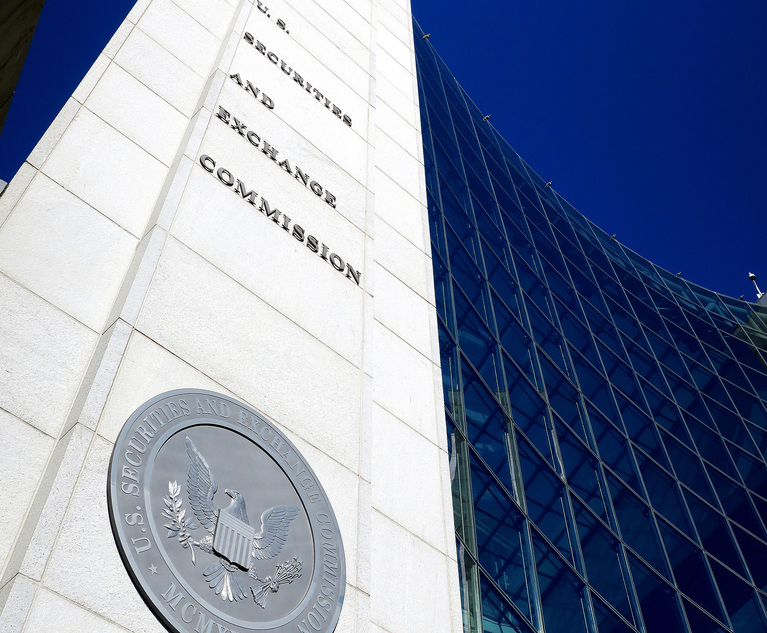SEC Expected to Follow DOJ in Scaling Back FCPA Enforcement, Experts Say
Washington, D.C., August 5, 2025 – The U.S. Securities and Exchange Commission (SEC) is anticipated to align with the Department of Justice (DOJ) in reducing enforcement of the Foreign Corrupt Practices Act (FCPA), following a significant policy shift initiated by President Donald Trump’s executive order on February 10, 2025. Legal experts suggest that the SEC, which handles civil enforcement of the FCPA’s anti-bribery and accounting provisions, will likely scale back investigations and actions, mirroring the DOJ’s pause on criminal enforcement. This development, reported by Law.com and discussed in posts on X, has sparked debate about its implications for U.S. companies and global anti-corruption efforts.
Background: DOJ’s FCPA Enforcement Pause
The DOJ’s shift began with Trump’s executive order, titled “Pausing Foreign Corrupt Practices Act Enforcement to Further American Economic and National Security,” which halted new FCPA investigations and enforcement actions for 180 days, with a possible extension to 360 days. The order, issued to prioritize U.S. economic competitiveness, directed Attorney General Pamela Bondi to review existing cases and issue new guidelines focusing enforcement on cases tied to cartels, transnational criminal organizations (TCOs), or critical sectors like minerals and infrastructure. On June 9, 2025, Deputy Attorney General Todd Blanche released updated guidelines emphasizing “Focus, Fairness, and Efficiency,” prioritizing cases that protect U.S. economic and national security interests.
Since May 2025, the SEC has already closed at least two FCPA investigations and dropped one civil action, signaling a potential alignment with the DOJ’s approach. The acting deputy director of the SEC’s enforcement division stated on March 5, 2025, that it is “too early to tell” whether civil enforcement will continue at the same pace, but experts expect the SEC to follow the DOJ’s lead due to shared enforcement responsibilities and political pressures.
Why the SEC May Scale Back
The FCPA, enacted in 1977, prohibits U.S. companies and individuals from bribing foreign officials to secure business and mandates accurate accounting for publicly traded companies. The SEC enforces civil penalties, while the DOJ handles both civil and criminal cases. The executive order, while directly affecting the DOJ, does not explicitly bind the SEC. However, experts argue that the SEC’s enforcement is likely to soften for several reasons:
- Policy Alignment: The SEC often coordinates with the DOJ on FCPA cases, as seen in 2023 when both agencies resolved 13 corporate matters for $733 million. A shift in DOJ priorities, focusing on cartels and TCOs, is expected to influence the SEC to adopt a similar focus, particularly for issuers (publicly traded companies).
- Administrative Constraints: The Supreme Court’s 2024 Jarkesy decision limits the SEC’s ability to impose civil penalties through administrative proceedings, requiring federal court trials for certain cases. This ruling, combined with potential resource redirection under the Trump administration, may reduce the SEC’s capacity to pursue complex FCPA cases.
- Political Pressure: The administration’s view, articulated in the executive order, is that “overexpansive and unpredictable” FCPA enforcement harms U.S. competitiveness by restricting practices common among foreign competitors. This perspective, echoed by Attorney General Bondi’s February 5, 2025, memo prioritizing cartel-related bribery, suggests political pressure on the SEC to ease enforcement against U.S. companies.
Implications for Companies
While the DOJ’s pause and the SEC’s expected pullback may reduce immediate enforcement risks, experts caution that companies should maintain robust compliance programs:
- Ongoing Legal Risks: The FCPA remains law, with a five-year statute of limitations, extendable to eight years with foreign evidence requests or conspiracy charges. Violations during the pause could face scrutiny under a future administration, starting in 2029.
- SEC’s Independent Authority: The SEC retains authority to enforce FCPA accounting provisions, requiring accurate books and internal controls for issuers. Recent SEC actions, like the $220 million SAP SE settlement in January 2024, demonstrate continued focus on such violations, though enforcement may shift toward non-U.S. companies or egregious cases.
- Global Enforcement: Foreign regulators, such as the UK’s Serious Fraud Office and France’s Parquet National Financier, may intensify anti-bribery enforcement to fill the U.S. gap. The UK, France, and Switzerland’s International Anti-Corruption Prosecutorial Taskforce, announced in March 2025, signals increased global scrutiny.
- Corporate Compliance: Legal observers, including those at Hogan Lovells and Skadden, emphasize that anti-corruption compliance remains critical. Companies risk reputational damage, shareholder scrutiny, and future liability if they weaken controls, especially in high-risk regions where cartels or TCOs operate.
Public and Expert Sentiment
Posts on X reflect mixed reactions. Some users, like @Legal_Times, highlight the SEC’s likely alignment with the DOJ, citing the closure of investigations as evidence. Others express concern about reduced anti-corruption efforts, with one user noting, “This could greenlight unethical practices abroad, hurting America’s global reputation.” These views are inconclusive but underscore the polarizing nature of the policy shift.
Transparency International warned in February 2025 that the FCPA pause could damage perceptions of U.S. anti-corruption safeguards, dropping the U.S. to 28th in its Corruption Perceptions Index. The watchdog’s director, Gary Kalman, noted that even honest U.S. companies might face skepticism about contract integrity, while foreign regulators could scale back their own enforcement in response.
Conclusion
The SEC’s expected reduction in FCPA enforcement, following the DOJ’s lead, reflects a broader policy shift prioritizing U.S. economic competitiveness over aggressive anti-corruption measures. While this may ease short-term pressures on U.S. companies, the FCPA’s legal validity, potential for future enforcement, and increasing global scrutiny necessitate sustained compliance efforts. As new DOJ guidelines reshape enforcement to focus on cartels and critical sectors, the SEC’s role remains uncertain, but its recent actions suggest a cautious alignment with the administration’s priorities.
Sources: Law.com, WhiteHouse.gov, HoganLovells.com, HKLaw.com, CBS News, ControlRisks.com, ArnoldPorter.com, Reuters, Sidley.com, City-Journal.org, Global Investigations Review, Lexology.com, DOJ.gov, SEC.gov, JonesDay.com, CFODive.com, Stanford FCPA Database, AntiCorruption2023.jenner.com, WhiteCase.com, Skadden.com, posts on X
